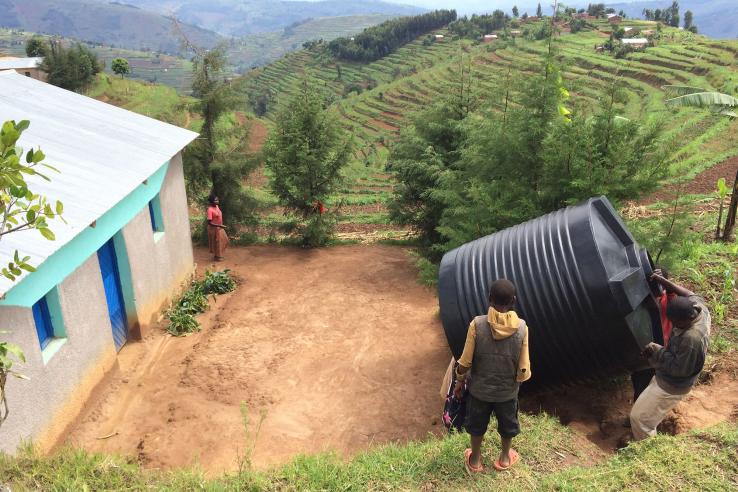Building the evidence base on smallholders’ barriers to technology adoption

How can we increase profits and improve livelihoods for 500 million smallholder farming households around the world—the most common occupation for people living under US$2 a day? The seven newest grantees of the Agricultural Technology Adoption Initiative (ATAI) will evaluate strategies to increase the adoption and impact of potentially profitable technologies for smallholders. In its eighth competitive request for proposals, ATAI funded four randomized evaluations and three pilot projects.
Smallholders increasingly need strategies to protect their livelihoods, as climate change increases the likelihood of extreme, damaging weather events. Rainwater harvesting, for example, helps protect farmers by making water more readily available during times with variable and inadequate rainfall. Two evaluations funded in this round aim to increase adoption of this technology. In India, J-PAL affiliate Aprajit Mahajan (UC Berkeley) along with Xavier Gine (World Bank), Anup Malani (Chicago), and Manaswini Rao (UC Berkeley) will evaluate the impact of a large-scale water tank restoration initiative by the Indian state government of Telangana called Mission Kakatiya. In Niger, where farmers experience low and erratic rainfall patterns that contribute to soil erosion, micro-catchments are a promising rainwater-harvesting technology that can collect soil runoff and increase soil nutrient content. J-PAL affiliates Jenny Aker (Tufts) and Kelsey Jack (Tufts) will test the provision of a combination of grants and training to increase adoption.
Underinvestment in agricultural inputs (such as fertilizer or hybrid seeds) can lead to low crop yields among smallholder farmers. Two evaluations funded by ATAI will help identify farmers’ barriers to investing in inputs. For example, in spite of demonstrated profitability, a flood-tolerant rice variety, Swarna-Sub1, has yet to diffuse widely in Odisha, India. J-PAL affiliate Elisabeth Sadoulet (UC Berkeley) along with Manzoor Dar (IRRI) and Kyle Emerick (Tufts), will test whether extension services targeted at agro-dealers can be more effective in encouraging adoption of Swarna-Sub1 than extension services targeted specifically towards farmers. In Mali, Andrew Dillon (Michigan State) will conduct an evaluation to disentangle the relative importance of commitment mechanisms, which help farmers plan for the future, and credit products in increasing fertilizer adoption. Researchers will partner with a microcredit provider and a network of agro-input dealers to provide agricultural loans on different commitment terms through input fairs.
The three pilot studies were also funded. These projects will explore questions around soil fertility management in India (J-PAL affiliate Shawn Cole, Harvard); wage labor in India (J-PAL affiliates Emily Breza, Columbia, and Supreet Kaur, UC Berkeley); and seasonal loans in Zambia (J-PAL affiliate Kelsey Jack, Tufts together with Günther Fink, Harvard).
Established in 2009, ATAI is a collaboration between J-PAL and UC Berkeley’s Center for Effective Global Action (CEGA). Through competitive requests for proposals, ATAI funds research that explores effective approaches to increase technology adoption that enhances profitability and to facilitate smallholder farmers’ engagement with markets. ATAI researchers and staff disseminate research findings among practitioners and policymakers, help implementers scale cost-effective strategies, and support evidence-informed program design in agriculture. To date, ATAI has funded fifty projects in sub-Saharan Africa and South Asia.
